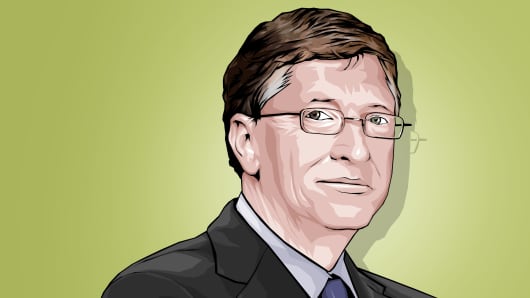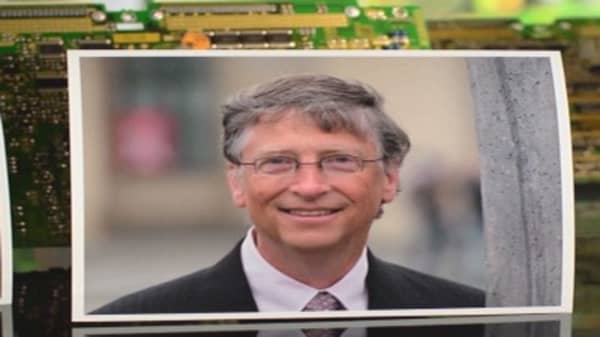Founder, Microsoft; co-chair, Bill & Melinda Gates Foundation
Born: Oct. 28, 1955, Seattle
Education: Harvard University (dropped out)
William Henry Gates III had an idea back when computers were still mainframes or the domain of Popular Electronics hobbyists: One day a personal computer would be on every office desk and in every home, and he could make a royalty from each one running his software under license. That idea led to what became the world's largest PC software company, which Gates created with Paul Allen, a friend from Lakeside, the Seattle prep school the two had attended. Their company, Microsoft, shaped the user experience for the first era of the PC revolution, which transformed daily life for billions of businesses and individuals worldwide.
A rare acumen for software development and technological innovation, as well as forceful business tactics, helped make Gates a billionaire by 31. His MS-DOS and Windows operating systems, and productivity software such as Microsoft Word and Excel, let Microsoft dominate the early-Internet phase of desktop computing. Gates was the world's richest person in every year but one between 1995 and 2009. He is again, according to Forbes, which figures his worth at $76 billion.










































